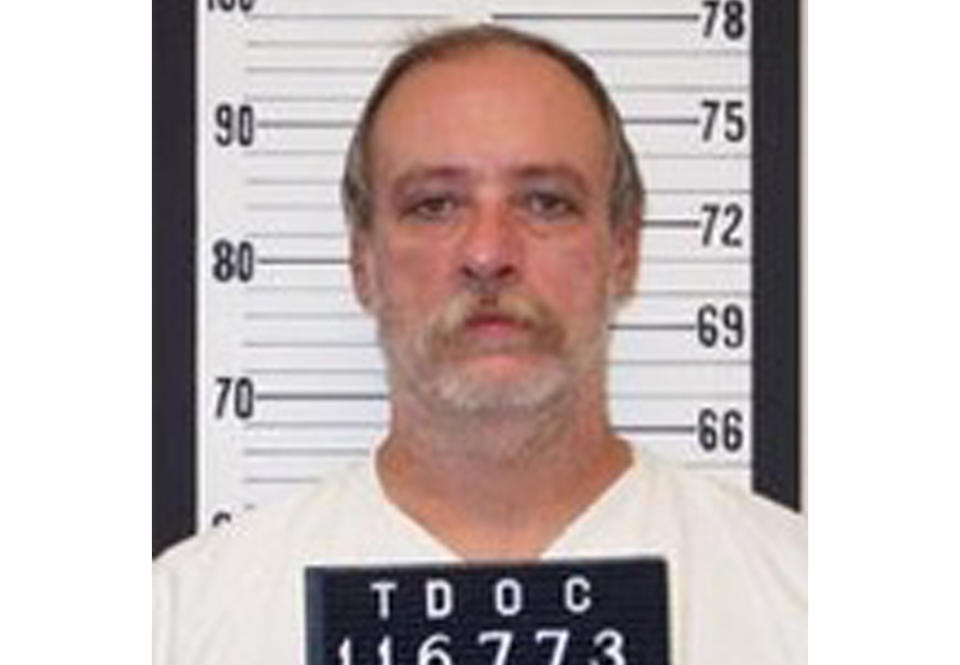The Latest: Daughter ‘heartbroken’ over DNA evidence ruling
MEMPHIS, Tenn. (AP) — The Latest on attempts to test DNA evidence in a murder 13 years after a Tennessee man was executed for the crime (all times local):
2:40 p.m.
The daughter of a man executed for murder 13 years ago says she is “heartbroken” that a Tennessee judge dismissed her petition for DNA evidence testing.
A Memphis judge ruled Monday that the estate, represented by April Alley, lacks standing to request the testing.
Alley is the daughter of Sedley Alley, executed in 2006 for the murder of Marine Lance Cpl. Suzanne Collins.
April Alley petitioned for the testing after investigators in a Missouri murder case contacted the Innocence Project about a possible connection between another suspect and Collins.
A statement from the prosecutor reads, “After 34 years of appeals by the defense, the Collins family continues to be the only victim in this case.”
Alley’s attorneys have filed a notice that they will appeal.
___
11:10 a.m.
An attorney for the estate of a Tennessee man executed for murder 13 years ago says he intends to appeal the denial of an order for DNA testing.
A Memphis judge ruled Monday that the estate, represented by April Alley, doesn’t have standing to request the testing.
Alley is the daughter of Sedley Alley, executed in 2006 for the 1985 murder of Marine Lance Cpl. Suzanne Collins.
Shelby County Judge Paula Skahan ruled against her on Monday.
Alley petitioned for the testing after investigators in a Missouri murder case contacted the Innocence Project about a possible connection between another suspect and Collins.
Alley confessed to the crime but later said his confession was coerced.
Alley’s attorney William Massey said Monday they are disappointed with the ruling and plan to appeal.
___
10:00 a.m.
A Memphis judge has ruled that the daughter of a man executed 13 years ago for murder does not have the right to seek DNA testing of the evidence in the case.
April Alley is the daughter of Sedley Alley, executed in 2006 for the 1985 murder of Marine Lance Cpl. Suzanne Collins. In May, April Alley petitioned the court on behalf of her father’s estate to order DNA testing.
Shelby County Judge Paula Skahan ruled against her on Monday.
The move came after investigators in a Missouri murder case contacted the Innocence Project about a possible connection between another suspect and Collins.
Prosecutors have opposed the testing. Shelby County District Attorney Amy Weirich previously said Sedley Alley’s guilt was proven with absolute certainty.
Alley confessed to the crime but later said his confession was coerced.
___
1 a.m.
Since the early 1990s, 22 death row inmates around the U.S. have been exonerated through DNA evidence. Now, the Innocence Project hopes to go even further and use DNA evidence to exonerate a Tennessee man executed 13 years ago.
Sedley Alley received a lethal injection in 2006 for the July 1985 murder of 19-year-old Marine Lance Cpl. Suzanne Collins, who was raped and beaten near the former Memphis Naval Air Station in Millington.
Alley confessed, but later said the confession was coerced.
At a hearing last month, attorneys for daughter April Alley argued she should be allowed to request DNA testing on behalf of her father's estate.
Her attorneys include Innocence Project co-founder Barry Scheck, who says investigators outside Tennessee contacted him about an alternative suspect in Collins’ death.
The judge promised to rule Monday.



